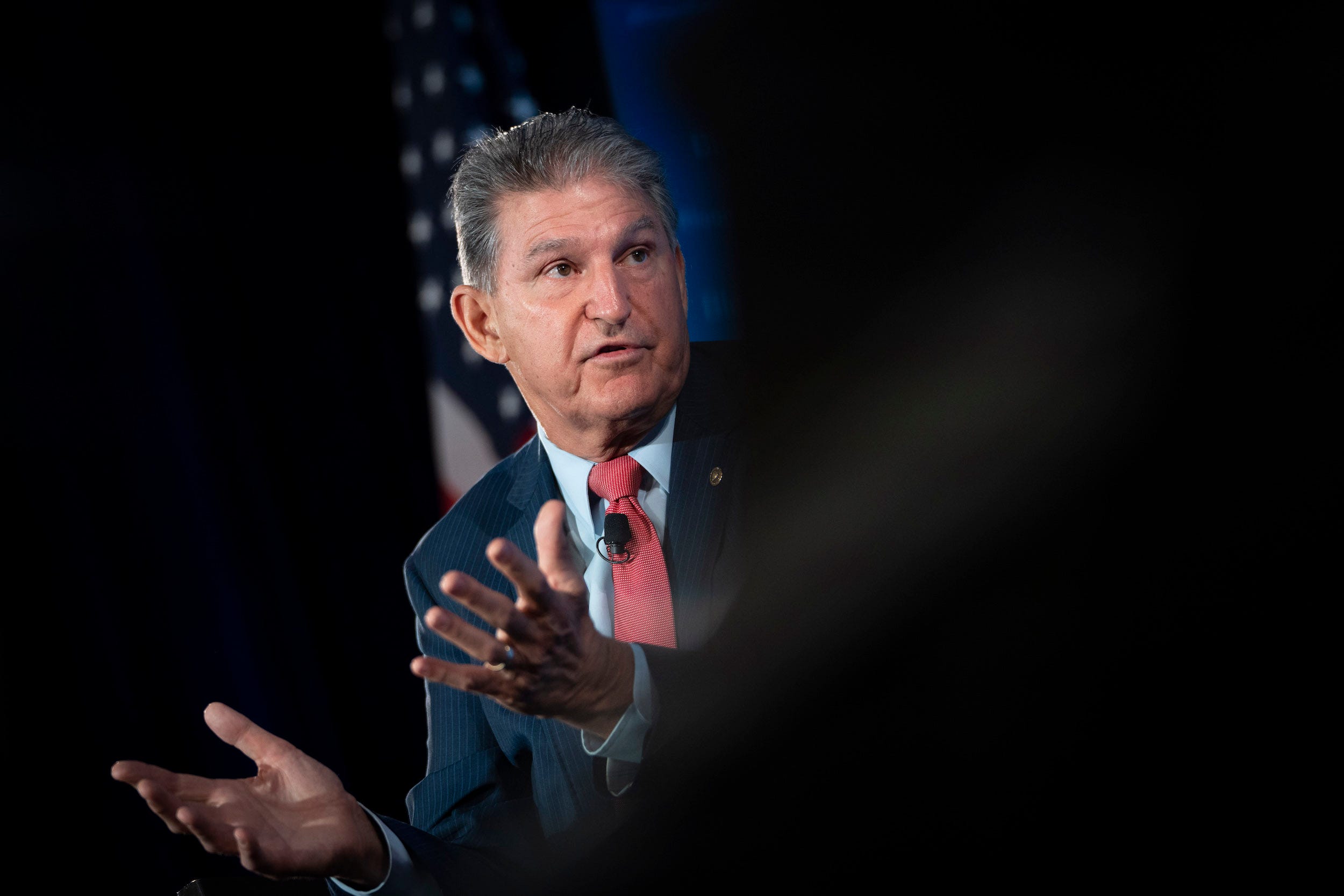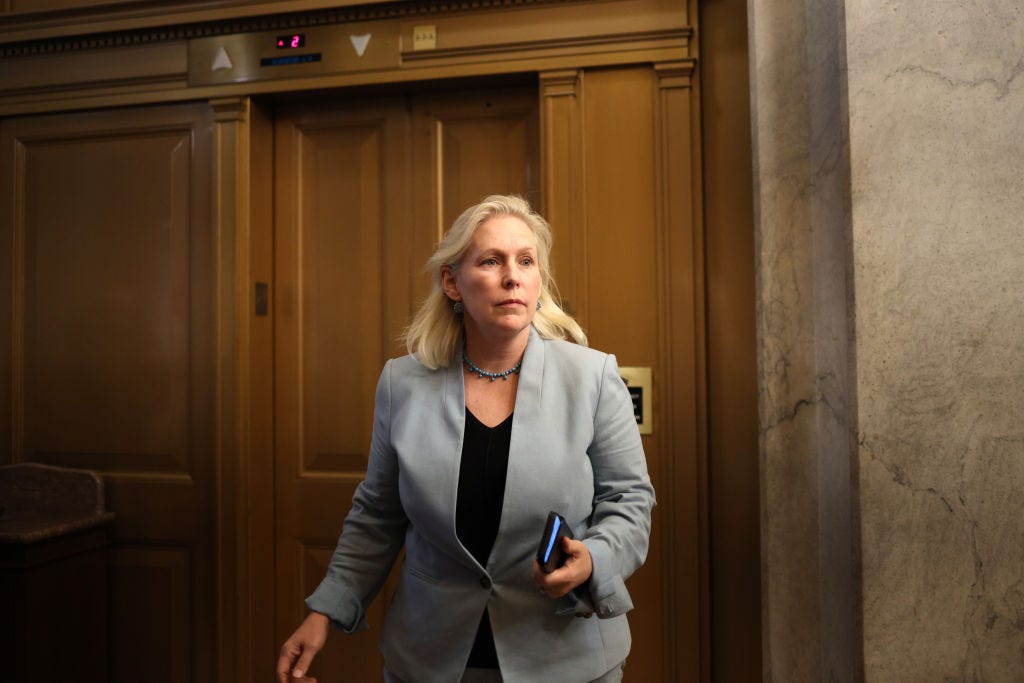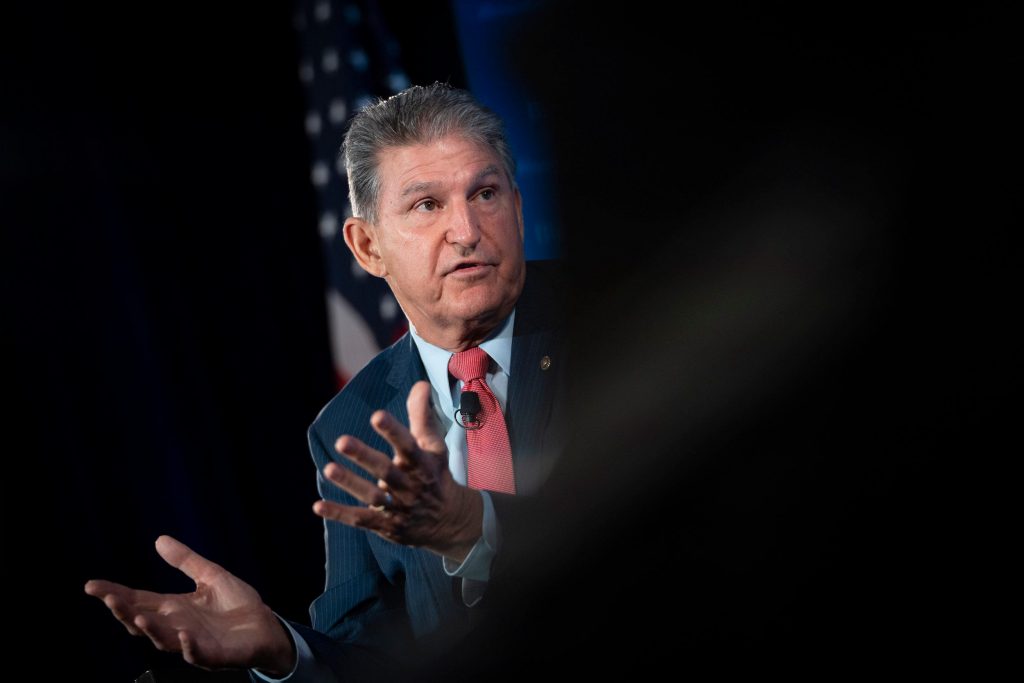
Drew Angerer/Getty Images
- Manchin pointed to potential fraud as one of his concerns about paid leave, per The Washington Post.
- Manchin's opposition to federal paid leave has caused consternation among many of his colleagues.
- Sen. Patty Murray said last week that she objected to "one man" denying US women paid leave.
For months, Sen. Joe Manchin of West Virginia has served as a moderate Democratic bulwark against the most ambitious elements of the "Build Back Better agenda" championed by President Joe Biden, which ranged from two years of tuition-free community college to a broad expansion of Medicare to cover dental and vision benefits, among other proposals.
However, one of the most sought-after proposals among Democrats was the implementation of paid family and medical leave for the millions of Americans who currently aren't able to access such benefits.
The White House earlier this year sought to subsidize 12 weeks of paid sick and parental leave, costing $500 billion over a decade, in what would have been a larger $3.5 trillion reconciliation bill – which had already come down from the $6 trillion figure that Senate Budget Chairman Bernie Sanders of Vermont had envisioned.
With the reconciliation bill being pared down from $3.5 trillion to roughly $1.75 trillion, the proposal for paid leave, which had been at 12 weeks, was reduced to 4 weeks – but by week's end, the entire paid-leave plan was seemingly cut from the framework being crafted by Biden and congressional Democratic leaders.
Manchin has stood firm against paid leave, citing its cost and potential strain on the federal budget.
However, according to a Washington Post report that detailed the push by Democratic women to save the family leave last week, Manchin has a series of "evolving concerns" about the benefit program, based on the statements of five individuals who spoke anonymously.
Manchin was reportedly concerned that a paid-leave program could generate fraud, comparing such malfeasance to people who were able to illegally obtain unemployment benefits, per The Post.
The Mountain State senator also reportedly brought up work requirements, despite employment already being a key tenet of eligibility for paid-leave, according to several of the sources who spoke with The Post.
In stating his opposition, Manchin has also emphasized the logistical burden that small businesses might face due to federal paid-leave legislation and expressed concerns about the "solvency" of a new social spending program.
"To expand social programs when you have trust funds that aren't solvent, that are going insolvent - I can't explain that, it doesn't make sense to me," the senator said earlier this month. "I want to work with everyone as long as we can start paying for things. That's all. I can't put this burden on my grandchildren."

Anna Moneymaker/Getty Images
According to Pew Research, the US is a notable outlier when it comes to paid parental leave. Across 41 countries, America is the only that does not mandate paid leave. The US similarly lags behind peers in paid sick leave, with no federal sick leave mandates.
Sen. Kyrsten Sinema of Arizona, a fellow moderate who has also stymied Democratic leadership over the size of the reconciliation bill, introduced bipartisan family leave legislation in 2019 that would have given the families the option of advancing up to $5,000 of child tax credits to parents in the first year of a child's life or the first year of adopting a child. However, the bill stalled in Congress.
The senator was reportedly one of several female Democratic senators who called Manchin to lobby his support for paid leave, according to a source who spoke to The Post.
Numerous studies have found that paid leave has a positive effect on the economy and workers. Paid leave may lead to higher earnings for women, healthier children, and stronger economic growth, according to a study by the think tank, New America. An analysis from the University of Massachusetts Amherst found that paid leave would increase Americans' incomes by $28.5 billion every year.
Among the Democratic caucus, Sens. Kirsten Gillibrand of New York and Patty Murray of Washington have been extremely vocal about the need for paid leave.
Gillibrand, who has championed the issue for years, worked the phones on Friday in an attempt to move Manchin on the issue, telling him she'd "meet him in DC or anywhere in the country" to discuss the issue, as she described to The Post in an interview.
However, the senior senator from was not phased by her personal appeal to him.
Murray, who has served in the Senate since 1993 and has also long sought a paid-leave program, was unrelenting in continuing her fight.
"We're not going to let one man tell all the women in this country that they can't have paid leave," she said on Capitol Hill last week.
Dit artikel is oorspronkelijk verschenen op z24.nl
